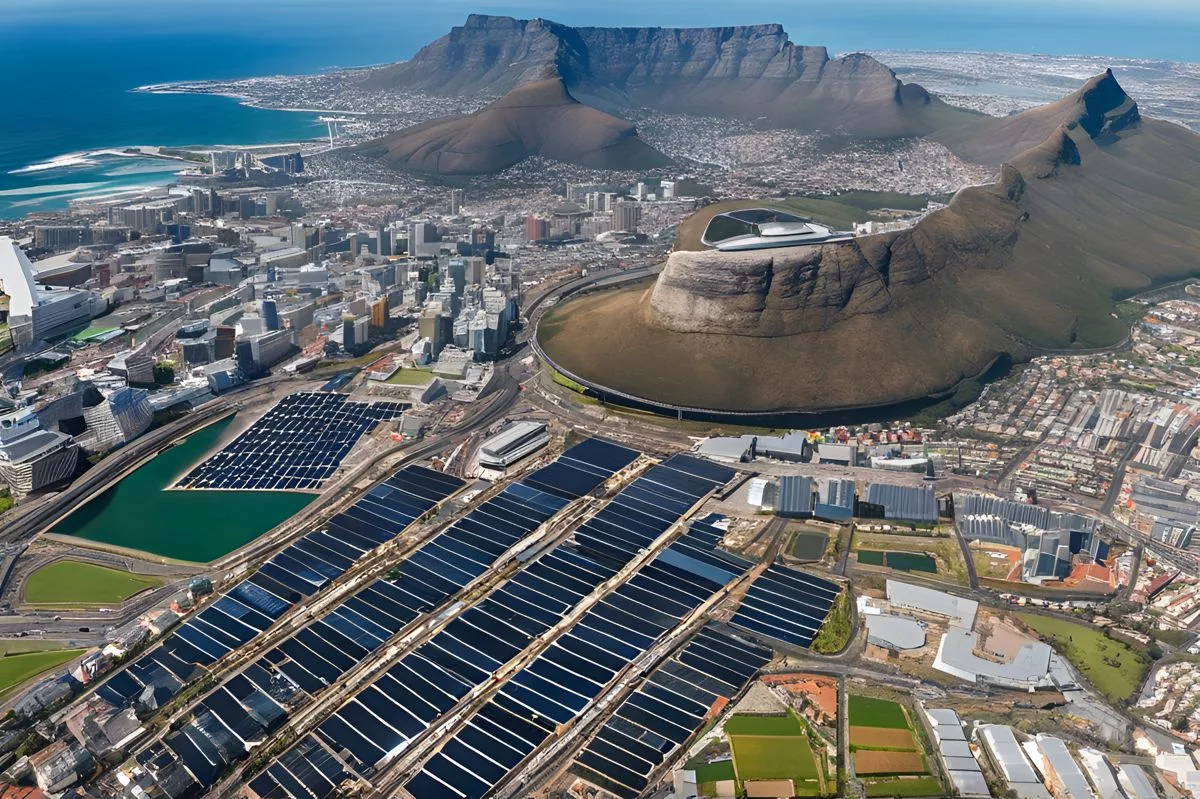Cape Town’s Cash for Power scheme allows households and businesses to trade their surplus solar power back to the city, providing an opportunity to tap into clean and renewable solar energy while also receiving financial rewards. The program has led to collective earnings of over R20.8 million for participants and has spurred interest in solar power utilization. Cape Town’s commitment to renewable energy and sustainable practices is setting a standard for other cities throughout the continent.
What is Cape Town’s Cash for Power scheme?
Cape Town’s Cash for Power scheme is a pioneering project that allows households and businesses to trade their surplus solar power back to the city, offering an opportunity for residents to tap into clean and renewable solar energy while also receiving financial rewards. The program has led to collective earnings of over R20.8 million for participants and has spurred interest in solar power utilization, showcasing the city’s commitment to renewable energy and sustainable practices.
A Quiet Revolution in Cape Town
In the vibrant and sun-soaked city of Cape Town, a silent yet powerful transformation is underway. As the globe faces the dual crises of climate change and energy resource scarcity, the city’s inhabitants are harnessing the sun’s energy to illuminate their homes and enrich their lives. The city has initiated a pioneering project known as the Cash for Power scheme. This scheme facilitates households to trade their surplus solar power back to the city, marking a first in South Africa and setting a standard for other cities throughout the continent.
Initiated in 2023, the program provides residents with the opportunity to tap into solar energy, a clean and renewable alternative to conventional electricity sources. The scheme involves the City of Cape Town buying surplus solar power produced by small-scale generators. This helps to not only champion renewable energy but also offer financial rewards for participating households.
By the conclusion of the first application period in March 2024, a substantial number of 432 households had joined the initiative. Businesses are also embracing this green energy shift, with commercial and industrial entities having access to the program since June 2023. As of April 1, 2024, the scheme had a total of 1,537 sellers, which included 910 residential and 627 commercial and industrial participants.
The Cash for Power Programme’s Success
The scheme operates by reducing an electricity seller’s total municipal bill to zero, offering the chance to gain an incentive beyond the zero balance. This means that both residents and businesses can slash their utility bills to nothing while also making additional money by selling their surplus solar energy. Thus far, the program has led to collective earnings of over R20.8 million for Cape Town’s households and businesses.
Cape Town’s Mayor, Geordin Hill-Lewis, has expressed optimism for the program’s success, stating that policy adjustments enabling cash payouts and total municipal bill credits have spurred interest in solar power utilization. In order to enhance accessibility, the City has launched an online portal to facilitate the registration of solar PV systems, making renewable energy more attainable than ever.
The Cash for Power program speaks volumes about the city’s commitment to renewable energy and sustainable practices. Yet, it also underscores Cape Town’s innovative character and dedication to empowering its inhabitants.
Future Prospects and Impact
The Cash for Power program extends beyond solar power; it’s about tapping into the power of the populace. Each household that installs a solar panel and every enterprise that transitions to renewable energy adds to the city’s overall energy capacity and displays its commitment to a greener future. The program is mutually beneficial, offering financial rewards for participants and championing a sustainable and environmentally friendly way of life.
Although the first window for participation is now closed, the city is gearing up to open a second window for interested individuals. The program’s traction is evident and an increase in the number of residents and businesses joining the solar revolution is anticipated.
This inventive program illustrates how individual contributions can drastically influence a city’s energy scenario. Each solar panel installed signifies a stride towards a more sustainable future—a future where renewable energy is mainstream. Through the Cash for Power program, Cape Town is not only energizing its homes and businesses but also fueling a revolution in renewable energy.
As Cape Town persists in harnessing solar power, the city is not only illuminating its inhabitants but also pioneering South Africa’s shift to renewable energy. The Cash for Power scheme is another testament to how Cape Town continuously pushes boundaries, fostering innovation and sustainability in the quest for a greener, cleaner future.
What is the purpose of Cape Town’s Cash for Power scheme?
The purpose of Cape Town’s Cash for Power scheme is to offer households and businesses the opportunity to trade their surplus solar power back to the city, providing an opportunity to tap into clean and renewable solar energy while also receiving financial rewards. The program aims to champion renewable energy and sustainable practices, setting a standard for other cities throughout the continent.
How does the Cash for Power scheme work?
The Cash for Power scheme involves the City of Cape Town buying surplus solar power produced by small-scale generators. This helps to reduce an electricity seller’s total municipal bill to zero while offering an opportunity to gain an incentive beyond the zero balance. This means that both residents and businesses can slash their utility bills to nothing while also making additional money by selling their surplus solar energy.
How successful has the Cash for Power scheme been?
The Cash for Power scheme has been highly successful, with collective earnings of over R20.8 million for Cape Town’s households and businesses. The program has led to a substantial number of participants, including 432 households and 627 commercial and industrial entities as of April 1, 2024. The scheme has also spurred interest in solar power utilization, showcasing the city’s commitment to renewable energy and sustainable practices.
How can individuals participate in the Cash for Power scheme?
Individuals can participate in the Cash for Power scheme by installing solar panels in their homes or businesses and registering their solar PV systems on the city’s online portal. The first window for participation has closed, but a second window is anticipated to open for interested individuals.
What impact does the Cash for Power scheme have on Cape Town’s energy scenario?
The Cash for Power scheme has a significant impact on Cape Town’s energy scenario, as each household that installs a solar panel and every enterprise that transitions to renewable energy adds to the city’s overall energy capacity and displays its commitment to a greener future. The program is mutually beneficial, offering financial rewards for participants and championing a sustainable and environmentally friendly way of life.
How does the Cash for Power scheme showcase Cape Town’s innovative character?
The Cash for Power scheme underscores Cape Town’s innovative character by showcasing the city’s dedication to empowering its inhabitants and fostering innovation and sustainability in the quest for a greener, cleaner future. The program illustrates how individual contributions can drastically influence a city’s energy scenario and is setting a standard for other cities throughout the continent.












